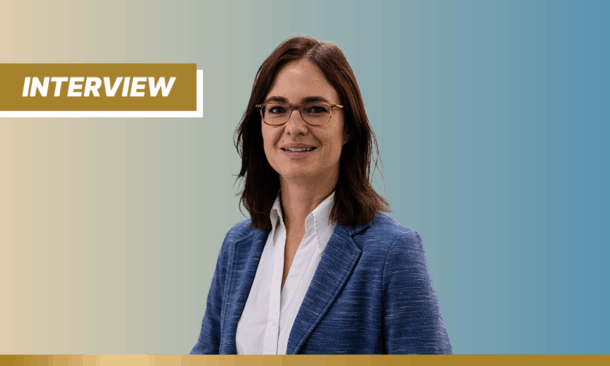Dr Henar Hevia, Senior Director, EMEA Therapeutic Area Lead, Oncology, J&J Innovative Medicine, reveals what it’s like to work in oncology today, the potential of precision medicine and her hopes for the future
Interview by Jade Williams
What inspired you to pursue a career in the pharmaceutical industry?
Since childhood, I’ve always known I wanted to dedicate my professional life to helping people. I was intrigued by the biology behind diseases and driven by a desire to find answers to some of the biggest scientific questions out there.
Spending time immersed in research as a biochemist provided me with a deep understanding of oncology, but also a desire to make a broader impact – leading me to the pharma industry to help bridge scientific discoveries with real-world outcomes. This has allowed me to contribute more holistically to care pathways, continuously learning from patients, healthcare professionals and policymakers while working alongside a supportive and collaborative team, dedicated to improving experiences for those living with cancer.
Take us through the day-to-day of your current work
In my role there is no ceiling, and no two days are ever the same. I thrive on the variety and agility it demands, working with multidisciplinary teams across specialisms and countries, and engaging with external stakeholders to navigate the shifting dynamics influencing healthcare. Listening with compassion is essential as these diverse perspectives help us shape strategies to support the research, development and delivery of medical innovations – ensuring we address the unique challenges faced by patients living with different types of cancer.
Within medical affairs, I’m passionate about shaping a forward-looking function that goes beyond sharing data to engage early, anticipate unmet needs and ensure innovative solutions are embedded into healthcare systems and clinical practice from the outset. Collaboration across functions is also key – we’re like a team in a boat, each rowing with a different oar, moving toward the same goal: bringing innovation to patients and transforming outcomes. That purpose drives me, and I see it as both a privilege and a responsibility.
In my role there is no ceiling, and no two days are ever the same
What motivates you to work in oncology, including at J&J specifically?
Oncology is more than a scientific interest for me: it’s deeply personal. Like many, I’ve seen cancer’s impact on friends and family, meaning I’m grateful for the opportunity to contribute to something bigger.
Oncology is an area of urgent need and constant innovation – cancer is complex and ever evolving, it adapts, resist and returns. Our ambition is to get in front of cancer – not only to extend lives, but to deliver innovation that improves quality of life for patients and their families. It’s about giving people the chance to experience moments that might otherwise be lost.
One of the most exciting opportunities we’re focused on right now at J&J is personalising cancer care. It’s no longer enough to say someone has cancer – we need to understand what type of cancer they have, the drivers of disease and whether any unique biomarkers are being expressed. We’re also developing targeted therapies with novel mechanisms and delivery systems, and partnering across the healthcare ecosystem to ensure sustainable integration into health systems and to ensure timely patient access.
How can companies improve access to precision-based approaches?
Improving access demands unified action across the health ecosystem. One of the biggest barriers is biomarker testing – the gateway to identifying the most appropriate treatment for each patient. Across Europe, access and uptake remain inconsistent, shaped by reimbursement policies, lab infrastructure, turnaround times and awareness among patients and HCPs. Embedding precision testing into routine care is essential so patients can benefit from the latest innovations tailored to their disease profile.
A multidisciplinary approach from diagnosis is also critical, this includes education for both patients and clinicians, and adapting care pathways to support newer, more complex therapies. Above all, collaboration is key. Patients, advocacy groups, clinicians, regulators, industry and policymakers must all work together to enable timely, equitable access to testing and treatment. Every person with cancer deserves access to biomarker testing and tailored treatment to optimise their chance of successful outcomes.
Every person with cancer deserves access to biomarker testing and tailored treatment
What other new approaches in oncology are you most excited about?
I feel fortunate to work in oncology at a time of unprecedented scientific progress. The innovations that excite me most are those that are transforming the meaning of a cancer diagnosis, offering real hope, more time, better quality of life and personalised care.
Advances harnessing the immune system, such as cell therapies, multi-specific antibodies and T-cell redirecting technologies, are also opening new possibilities in tumour control and resistance management, which is exciting.
Finally, digital health technologies, especially advances in AI, are set to reshape how we detect, diagnose and monitor cancer. The future of oncology innovation is incredibly bright, and I’m so proud to be part of a company helping drive this progress.
Outside of your work, do you have any personal passion projects?
I enjoy staying active and over the past few years, I’ve embraced movement in all forms, whether it’s at the gym, or dancing to stay active at classes like barre, where I can switch off and enjoy the music.
At home, I find peace in caring for orchids, and above all I cherish time with my daughter – I never take that quality time for granted, and it keeps me grounded, reminding me of what matters the most as we work to ensure our innovation make a real difference for patients and their loved ones.
CP-536545 – August 2025









